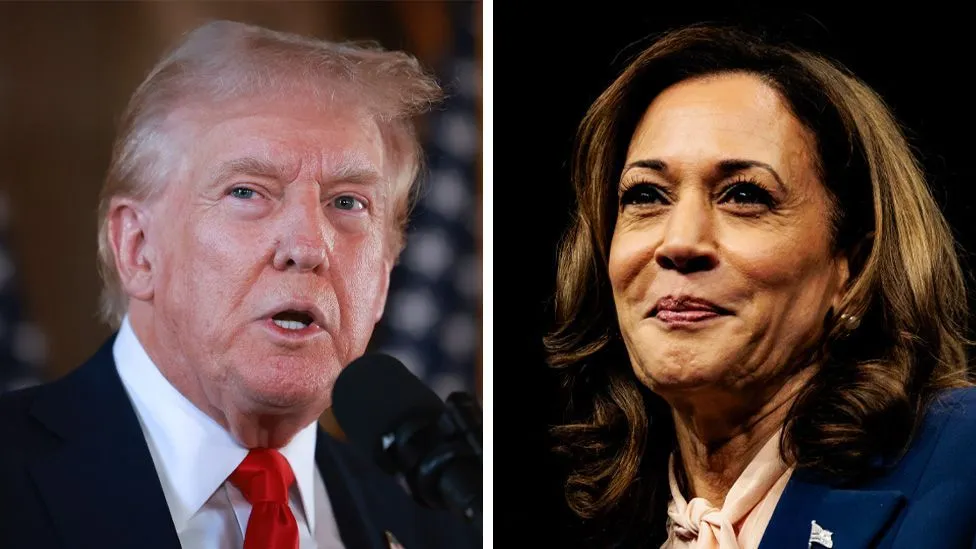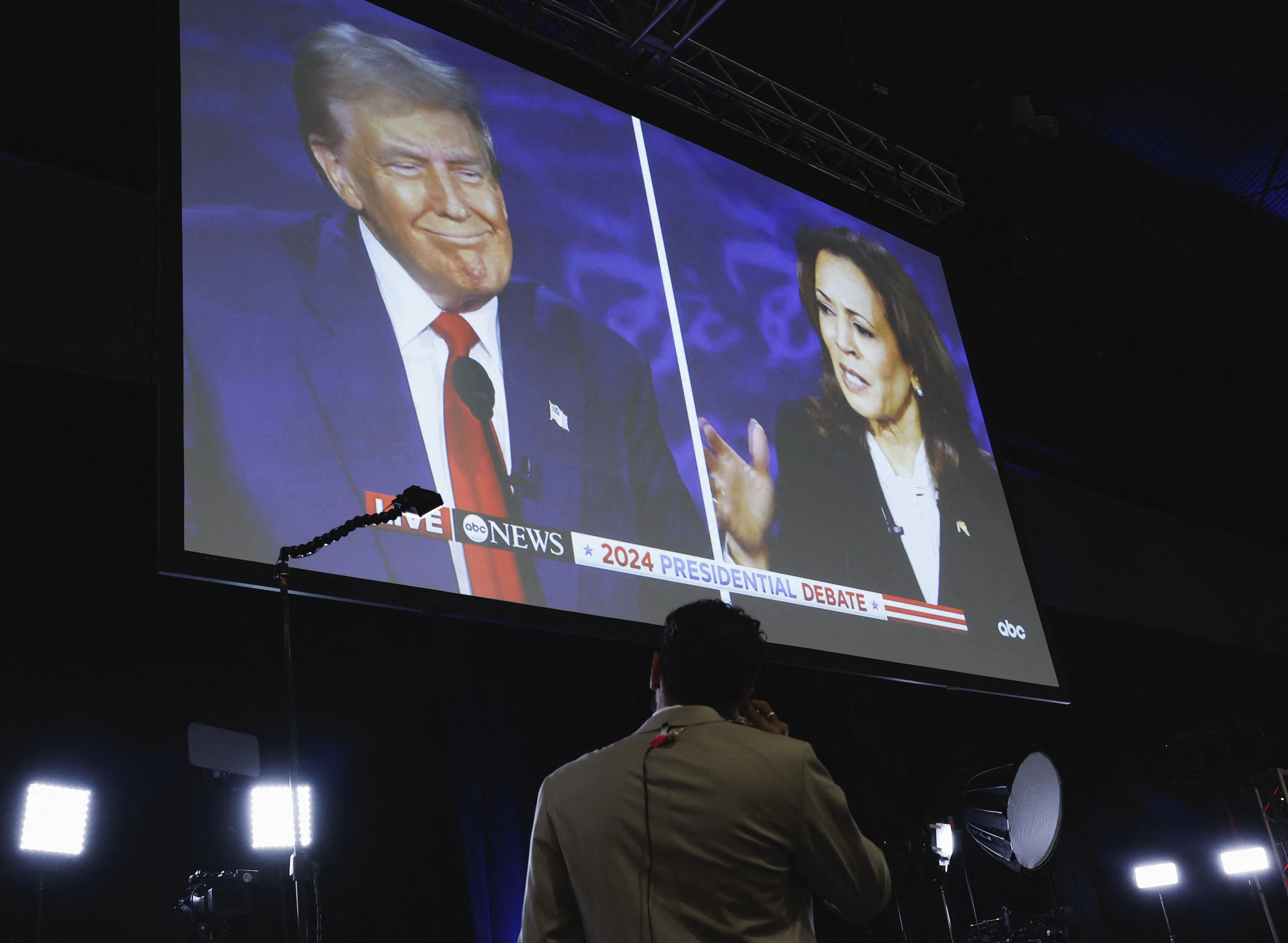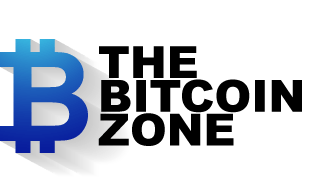
Though betting markets moved in Harris' favor after the event, Wall Street stayed on edge as a closely watched debate between Republican Donald Trump and Democratic Vice President Kamala Harris late Tuesday left investors little information on important policy issues.
As both sought a campaign-altering event in what has been a closely-fought contest, Trump and Harris engaged in a fiery debate on everything from the economy to immigration and Trump's legal issues.
"Neither one of them made strong economic points, but overall Harris came out of this better than Trump," said Eric Beyrich, Westchester, New York portfolio manager, Sound Income Strategies. "Markets really don't want strident statements; they want clarity."
Digital prediction market Foretell.While Trump's probability fell to 48% from 52%, Harris's odds showed improvement to 56% from 53% before the debate.
In asset prices, reaction was subdued. With the S&P 500 E-minis down 0.5% early Wednesday in Asia and Nasdaq 100 E-minis off 0.6%, stock futures relaxed as the debate developed.
Measuring the value of the U.S. dollar versus six main counterparts, the dollar index fell 0.2%.
"I think the debate is not going to change many minds, as voters remain closely divided," said Carson Group global macro strategist Sonu Varghese. "Harris moved ahead in prediction markets but that still keeps the race very close."

Still, some investors think even a minor change in candidate impressions might have a big impact in a fight where tens of thousands of votes in a few states could determine the outcome. Polling numbers gathered by the New York Times indicate that the two contenders are essentially tied in the seven battleground states expected to determine the outcome of the election.
Said Shier Lee Lim, Lead FX and Macro Strategist for APAC at Convera, "the debate does not seem to be having a major impact on markets so far, which aligns with the rather low volatility expectations heading into the event." "That said, the argument might still be a major driver of changing election probability."
Although the presidential contest is clearly on investors' thoughts, political issues have lately gathered with more immediate market drivers, including fears over a possibly weaker U.S. economy and uncertainty over how deeply the Fed will need to lower interest rates. Though the S&P is still up almost 15% this year, last week it recorded its worst weekly percentage fall since March 2023 following a second-straight lackluster employment report. You may also read this: Compliant as Crypto Changes Due to MiCA Regulations
Taxes and Tariffs
Trump has pledged reduced corporation taxes and a more aggressive trade and tariff policy. He has also claimed that a strong dollar damages the United States, but some analysts think his plans would cause inflation and so strengthen the currency.
Harris last month presented ideas to increase the corporate tax rate from 21% to 28%, a move some on Wall Street feel might negatively impact company earnings.
Harris highlighted her plan to provide tax incentives to families and small businesses on Tuesday night, attacking Trump's plans to slap high tariffs on foreign goods - a policy she has compared to a sales tax on the middle class.

Trump defended his tariff idea, claiming they wouldn't cause American prices to rise.
during pressure in the U.S.-China trade conflict during Trump's presidency, the Chinese yuan moved upward versus the dollar.
"Kamala Harris succeeded in shifting prediction market odds in her favor, supporting a modest, but broad-based improvement in risk appetite across currency markets,," said Karl Schamotta, chief market strategist, at Corpay in Toronto.
Trump further attacked Harris on the ongoing inflation under the Biden presidency. He claimed, "has been a disaster for people, for the middle class, for every class." Inflation
Still, economic policy could be in flux for some time longer.
"There wasn't much substantive debate of policy," Varghese of Carson Group remarked. "Neither candidate promoted radically different economic policies than those in use right now. In the end, the composition of the Senate and the House will determine most of the economic policies we observe being followed next year."
